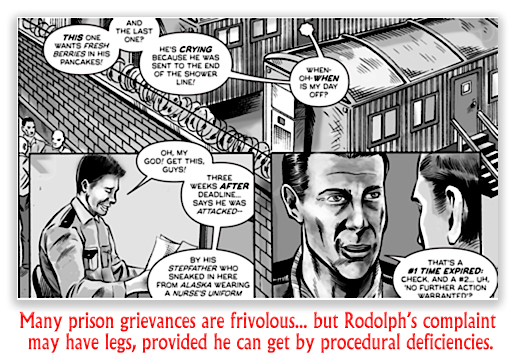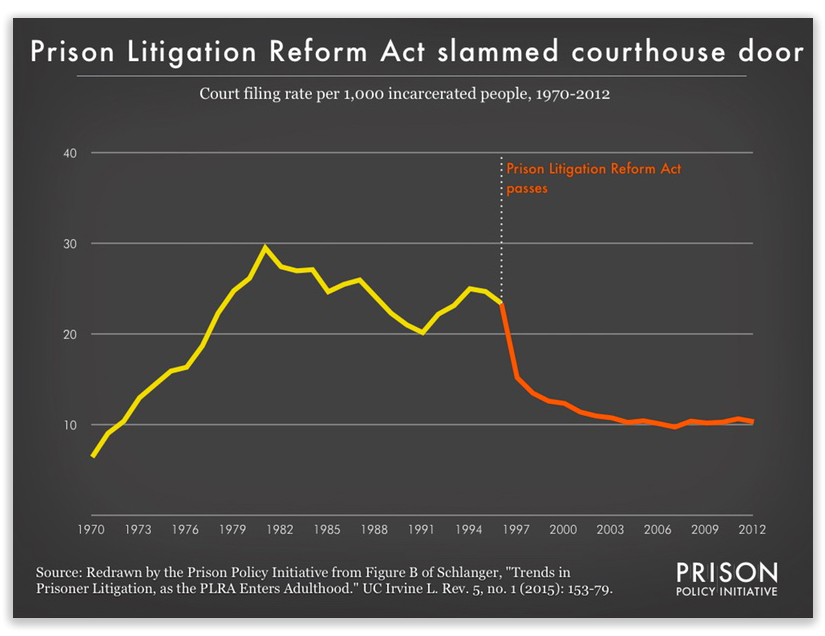We post news and comment on federal criminal justice issues, focused primarily on trial and post-conviction matters, legislative initiatives, and sentencing issues.

HOUSE PULLS A FAST ONE ON ‘CRIME OF VIOLENCE’
 While everyone was watching the Supreme Court confirmation last week, the House of Representatives passed a bill at the speed of light that would reclassify dozens of federal crimes as “crimes of violence,” making them deportable offenses under immigration law. Criminal justice advocacy groups say the bill, rushed to the floor without a single hearing, is unnecessary, is overbroad, and will intensify the problem of over-criminalization.
While everyone was watching the Supreme Court confirmation last week, the House of Representatives passed a bill at the speed of light that would reclassify dozens of federal crimes as “crimes of violence,” making them deportable offenses under immigration law. Criminal justice advocacy groups say the bill, rushed to the floor without a single hearing, is unnecessary, is overbroad, and will intensify the problem of over-criminalization.
The Community Safety and Security Act of 2018, H.R. 6691, passed by a largely party-line vote of 247–152. Among the crimes that it would make violent offenses are burglary, fleeing, and coercion through fraud. The bill, introduced only a week before, sailed to the House floor without a single hearing or markup prior to last Friday’s vote.
The Supreme Court ruled in Sessions v. Dimaya last spring that the definition of a “crime of violence” used in 18 USC 16(b) was unconstitutionally vague. House Republicans say they crafted the bill in response to the Court’s recommendations in that case. But the criminal justice reform advocacy group FAMM warned that the bill “would label seemingly nonviolent offenses such as burglary of an unoccupied home and fleeing as violent offenses.” The bill was also opposed by the House Liberty Caucus, which released a statement saying that the legislation “expands unconstitutional federal crimes and provides grossly disproportionate consequences for nonviolent offenses.”
Rep. Karen Handel (R-Georgia), however, one of H.R. 6691’s sponsors, claims the bill is urgently needed to keep communities safe from violent crime. “We don’t have the privilege to squabble over hypotheticals that have no bearing on the application of this law,” Handel argued during floor debate. “I can assure my colleagues this bill is not overly broad. It’s not a dangerous overexpansion. Instead, it’s a carefully crafted response to the Supreme Court’s recommendations.”
OSU law professor Doug Berman wrote in his Sentencing Law and Policy blog last Friday that “because the definition of “crime of violence” under federal law matters in lots of arenas beyond immigration, I am hopeful that the Senate will take a more careful and deliberative approach to this issue than has the House.” Although usually a bill introduced so late in the 2-year Congressional session stands no chance of becoming law, there is a risk that if criminal justice reform legislation passes the Senate, the House may try to force inclusion of H.R. 6691 in the final, compromise package.
Reason.com, House Passes Bill to Reclassify Dozens of Offenses as ‘Crimes of Violence’ (Sept. 7, 2018)
Sentencing Law and Policy, US House passes broad rewrite of the federal definition of “crime of violence” without any hearings (Sept. 7, 2018)
H.R.6691 – Community Safety and Security Act of 2018
– Thomas L. Root






















